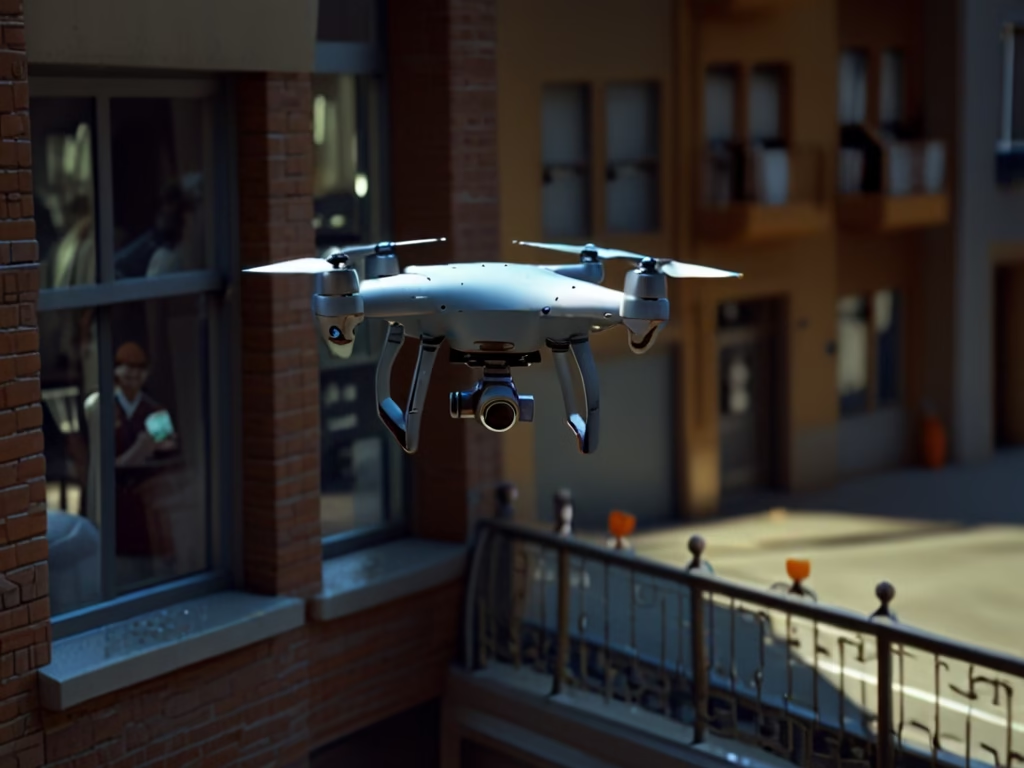
With drones now delivering coffee, robots doing the housework, and cyber cabs potentially managing the school runs, we live in a world where nearly every part of our convenient lives are powered by smart technology. The question is: have we truly become smarter by embracing technology, or are we simply getting lazier, leaving our lives to be run by gadgets while we kick back and do less?
In this exploration of modern living, we’ll look at the fine line between genuinely useful technology that makes life easier and life-preserving, versus the gadgets that enable a more “relaxed” lifestyle. Or worse, those that raise questions about privacy and over-reliance on automation. Spoiler alert: it’s not all sunshine and rainbows. And it’s full of controversy and contradictions.
So grab a cuppa, and let’s have a proper natter about how smart our “smart” lives really are, and if it’s even our fault. Are we hardwired for shortcuts, leaving ourselves open to exploitation by tech companies due to an evolutionary trait beyond our control? Do we even have a choice over whether we buy and use smart devices?
It started as a joke…
After discussing how few books we’ve read recently, I joked with my sister that it wasn’t her fault, that we’re all being manipulated by technology, making us lazy, opting for YouTube or Netflix to entertain us instead – as if holding a book or e-reader is too much like hard work.

But it’s not really funny, is it? And we both genuinely love and miss reading a good book. After some thought, I wanted to dig a little deeper and look at the bigger picture. Technology has certainly helped make my life easier. In fact, the technological advancements in my lifetime have brought many benefits.
The internet, email, and mobile phones didn’t exist when I was at school.
Like the internet – I could suddenly access information about almost anything, without carrying a bag of heavy books to and from the library. And films – I kinda miss walking to Blockbuster, there was an exciting apprehension, hoping the film you wanted wasn’t rented out or that the ones you picked weren’t rubbish. There only used to be a handful of Hollywood films a year released back then.
With the internet came email, and this meant I could contact friends and family quicker than snail mail while I travelled and worked away from home for the first time – though, early email and internet were slow, unpredictable, went down a lot, and not everyone used it. I still wrote, sent and received letters for many years. Around this time, mobile phones became mainstream. I had my first mobile phone in 1999, like the one from The Matrix. Now, we can use our mobile phone for everything I’ve just mentioned, and some!
Is it because less effort equals less reward?
Today, I can’t remember the last time I wrote a physical letter to a friend or relative, and everyone I see nowadays seems to have their mobiles out and be scrolling or streaming 50% of the time. Yet, statistics show that we’ve never been so lonely and isolated.
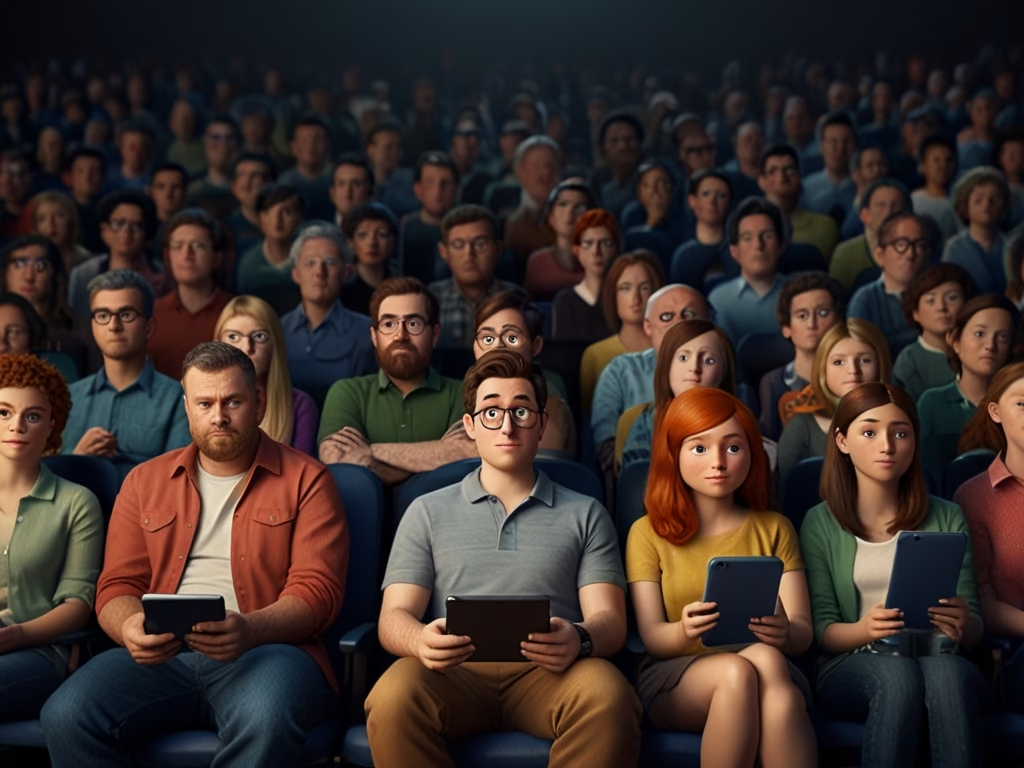
Despite the benefits, I see the disconnect technology is causing, not just from getting lost in a page-turner, but in society at large, and that’s ironic considering we’ve never been more interconnected than in today’s digital world.
Maybe it’s because so little effort goes into ‘liking’ what someone does or says, or because we can send a group text instead of writing individual letters. There’s no personal touch, it doesn’t feel particularly special to receive a generic text message not personal to you, people get used to and almost seem to expect ‘likes’ as if the dopamine reward gets less and is more drip-fed. And so, we likely respond with the same amount of effort, and this is usually unfulfilling, leading to a feeling of disconnect.
Did the pandemic force us to live online?
The pandemic changed a lot, and it was during the pandemic we started to rely more on technology and social media for keeping in touch with loved ones – people who hadn’t quite caught up with modern technology adopted it because it helped them connect with others during isolation.
Also, many businesses moved online and people used technology for remote working. And smart technology evolved and started powering everything from music and TV to shopping for goods and ordering food via apps – our lives moved online during the pandemic, we adopted technology without question. Now, we like our smart devices and the conveniences they bring. But there are obvious side effects.
Is Smart technology Making us Stupid?

Technology has undeniably transformed the way we live, but it’s also sparked some interesting debate about its impact on our intellectual capabilities. While some of these smart devices genuinely improve safety and convenience, others are making us more passive, relying on automation to handle everything from our home security to feeding our pets to communication. It’s a bit of a double-edged sword, isn’t it?
Proof of our Cognitive Decline:
Unfortunately, my hunch was correct. According to a study by The National Bureau of Economic Research, a shift towards more tech-dependent lifestyles has led to a noticeable decline in certain cognitive skills. For example:
A 2017 study found that 54% of adults felt they were using their memory less due to the convenience of smartphones and digital assistants, relying on devices to remember everything from appointments to phone numbers.
Additionally:
A 2021 report by The University of California showed a 12% decrease in attention span among individuals aged 18–34, with tech distractions like social media and constant notifications playing a key role.
While we’re becoming faster at processing information, our deep thinking and problem-solving abilities seem to be taking a hit. Essentially, we may be smarter in certain aspects like multitasking, and accessing multiple information platforms, but more nuanced intellectual skills like critical thinking, focus, and memory retention appear to be declining as technology takes the reins.
It’s a classic case of “smarter” in some ways, but perhaps “dumber” in others. But it’s not all bad news, and there are plenty of brain-training games to keep curious minds active. More so, many advancements in smart technology can be life-saving.
Convenience and Life-Saving Tech: The Good Stuff
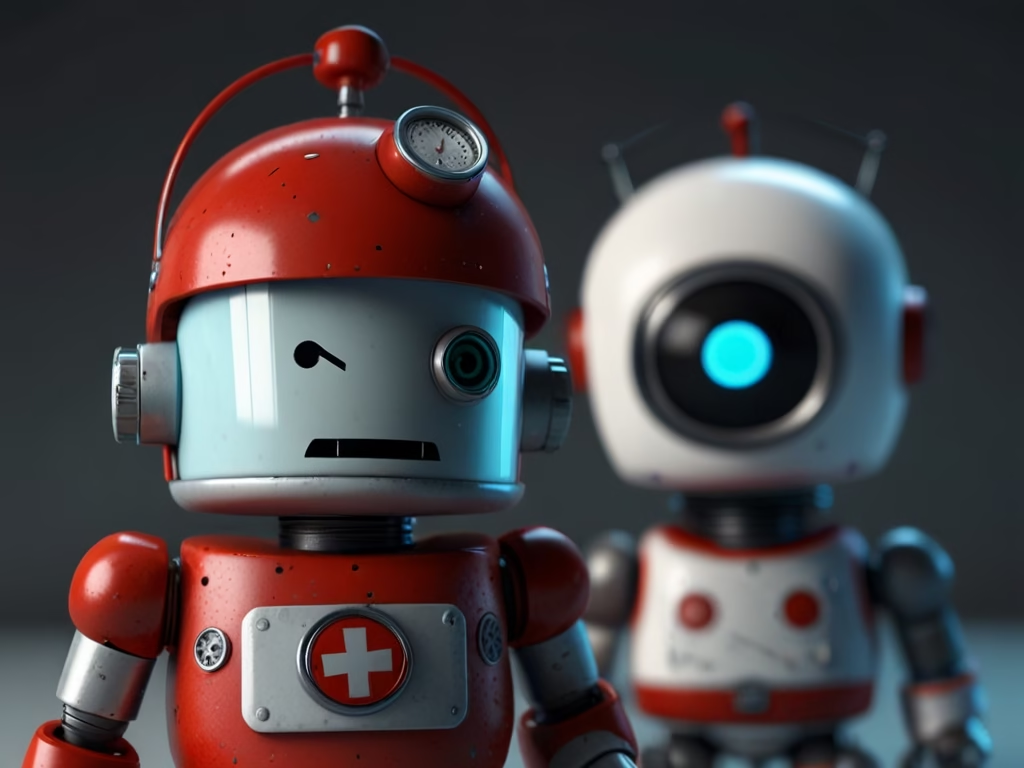
From a vessel to drink from to ones that help transport us across oceans to new lands, historically, we’ve invented thousands of things that have changed our lives. Let’s start with the gadgets that actually improve our lives – and no, we’re not talking about the “smart” kettle that turns on when you shout at it, or Alexa for always playing your favourite songs.
Medical devices
Some technology genuinely makes life better. Take, for example, medical devices like smart monitors that track blood pressure or glucose levels. These gadgets aren’t just convenient – they literally help save lives.
For people with chronic health conditions, they offer the peace of mind of knowing that their vitals are constantly monitored, and issues can be flagged before they become critical. Like Dad. He sometimes bleeps (yes, he uses terrible language), and he hates all this technology and having what looks like a security tab implanted in his arm, bleeping at him like a nagging wife, but he might not be around without it.
Safety devices
Similarly, smoke alarms that link to your smartphone, alerting you if there’s a fire or carbon monoxide leak while you’re sleeping or at work, are more than just handy – they also can be life-saving. A bilge alarm and pump on a boat is another great example – I live aboard a boat and these things help me sleep at night. Being able to monitor these things alongside security when I’m alone or not there is a game changer.
And don’t forget car tech. Self-driving cars may still be a work in progress, but features like lane-assist, parking sensors, and emergency braking systems are already making our daily drives much safer. There’s a genuine case to be made for technology that protects lives, improves well-being, and makes things easier.
Now, I know what you’re thinking: there’s a catch, right? There always is.
The Dark Side: How Technology Makes Us Lazy
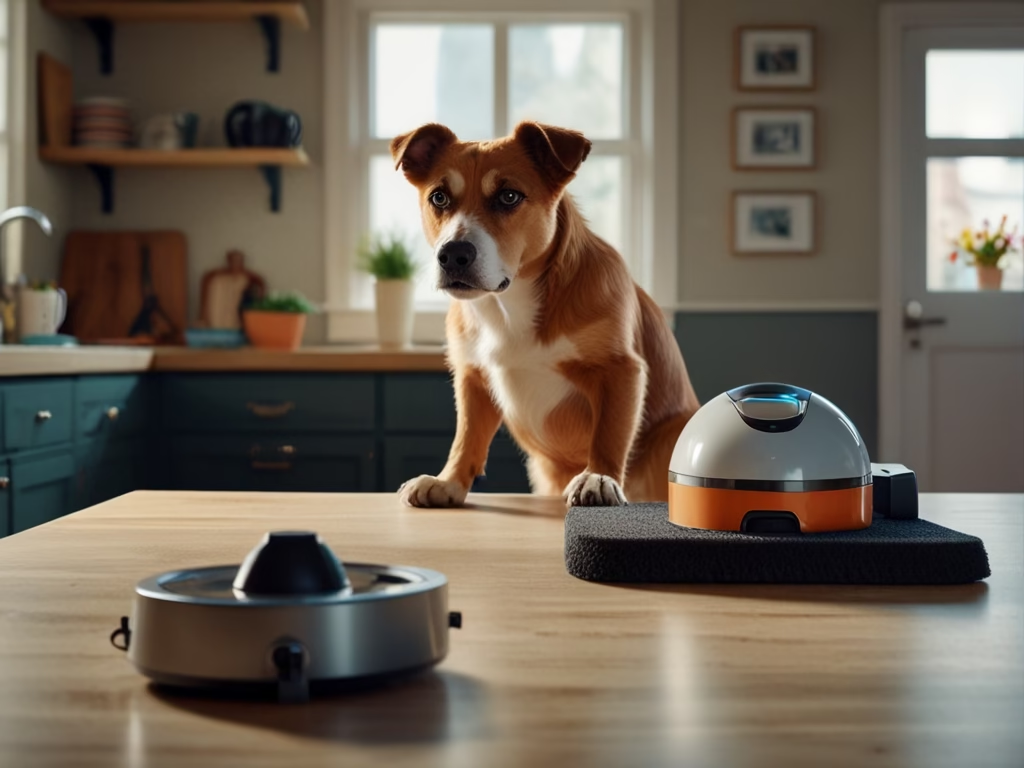
It’s not all sunshine and safety alarms, though. As smart technology takes over, there’s a growing concern about our increasing reliance on it, particularly when it comes to everyday convenience. Sure, an automatic pet feeder and an interactive camera might seem like a great idea for busy owners, but if you’re using it just to avoid spending time with your pet due to work or play instead of meeting its needs, are you truly fulfilling your role as a responsible pet parent? Or are we just getting lazy?
Products and innovation promote a life of convenience
This isn’t just about pets. The rise of “set-it-and-forget-it” gadgets across all areas of life is leaving many of us with fewer reasons to engage in the tasks we once handled manually, including spending time communicating with each other.
Cars that park themselves, homes that lock and unlock automatically, and shopping lists that update with a voice command – yes, these gadgets save time, but they also rob us of the simple tasks that, in the past, would have required a bit of elbow grease and brain power.
It’s starting to feel like we’re turning into those ‘live-in-the-cloud’ people you see in science fiction movies, perfectly content to let technology do all the heavy lifting and planning while providing ourselves with endless (and often meaningless) entertainment and conveniences.
But sometimes it’s just plain creepy: nefarious uses
And let’s not even get started on the darker side of smart devices. With home security cameras, smart doorbells, and pet cameras and trackers now so common, it’s not hard to imagine how these devices might be used for more nefarious purposes. Sure, you’ve got that nifty camera so you can check in on the dog while you’re out for the day. But there have been and will continue to be cases where some people use these devices to monitor and spy on other people.
Privacy breaches are a real concern in the era of connected devices, and it’s crucial to remember that, in a world full of surveillance, our every move is potentially being watched – whether we like it or not!
Tech: A Blessing or a Curse?
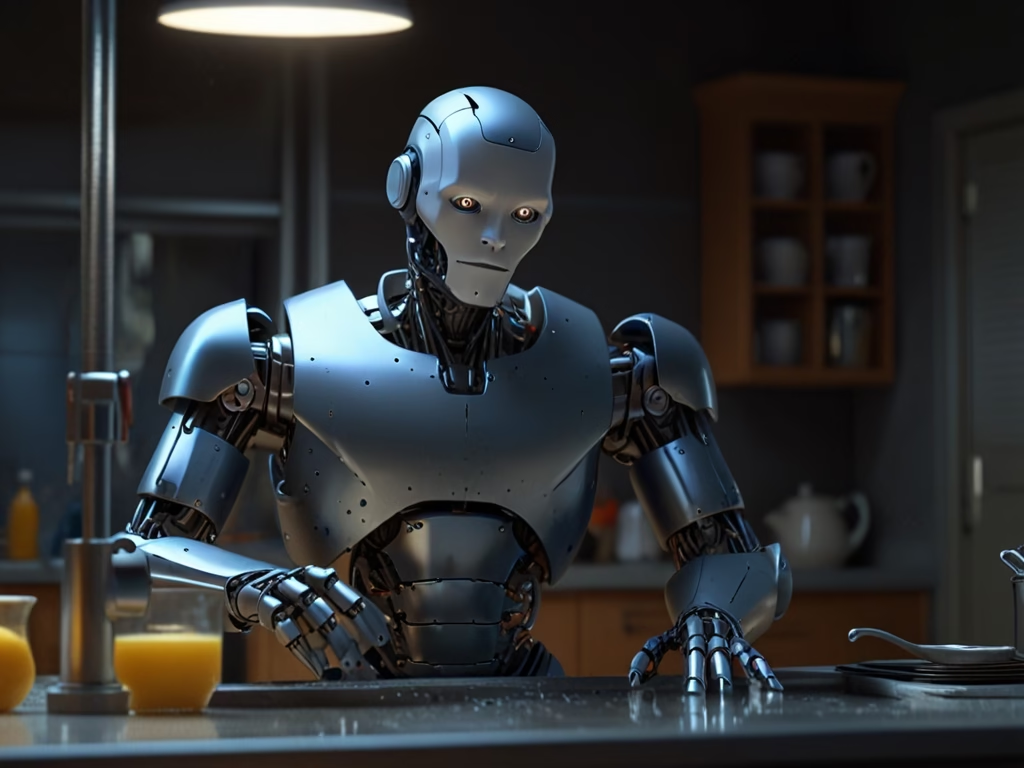
So, how smart are we for embracing all this? The truth is, it’s a bit of both. While smart devices like security cameras, health trackers, and automatic feeders bring undeniable benefits in terms of convenience, personal safety and health, they also come with the risk of making us lazier and more reliant on automation. Plus, there’s the potential for misuse, from spying on loved ones and neighbours to allowing us to neglect our responsibilities as pet owners, partners, parents, and drivers.
Also, by embracing these technologies and applauding our advancements, are we encouraging and supporting the inevitable job losses to come as we’re replaced by autonomous humanoid robots?
Elon Musk’s Take on Job Losses:
For example, Elon Musk says they will produce millions of humanoid robots in the coming years, and that his self-driving Tesla fleet will be fully autonomous within five years. The fleet is already capable of being fully autonomous (they only need a software update to switch to fully autonomous), and the robots are built and ready and the orders have been placed!
This includes Tesla’s top-selling Y Series cars, Semis (trucks), and robo-taxis, obviously, and they’re also already on the streets. We might ask: if people’s cars can pick them up from the pub and fetch the kids, then who’s going to need a taxi?
And what happens to the people who were employed to drive them, or the cleaners replaced by robots, the factory workers destined to be replaced by the new humanoid robots earmarked for mass production during 2025?
A guest in the audience asked Elon: “Will the robots take our jobs?”
He made a joke about people being: promoted to manager positions, managing robot factory workers and robo-taxi fleets. Right. And what about everyone else like the delivery drivers? He talks of a future of abundance for all and he seems confident in achieving this. Let’s hope so.
Perhaps now is a good time to ask how the heck we reached this point?
The Psychology Behind Human Laziness: We’re Not to Blame!

As much as we may like to think that technology is making us smarter, evidence suggests that it’s not. However, it’s not entirely our fault. Phew. It could be that our evolutionary history is playing a huge part in why we’re so eager to embrace the shortcut. Evolutionary psychology suggests that humans are hardwired to seek efficiency, take the easiest route, and conserve energy whenever possible. It’s part of our DNA! Oh dear, does this mean we’re doomed?
Dr David Geary, a renowned cognitive psychologist, explains that our brains evolved to be highly adaptive in the face of challenges, but with the rise of technology, we’re increasingly outsourcing those cognitive demands to our devices.
Hardwired Humans and Our Smart Machines: A Shortcut to the Grave?
In the past, survival was contingent on our ability to problem-solve, strategise, and think critically, whether it was hunting an animal, foraging for food, or outsmarting an enemy. These mental and physical tasks were necessary for our ancestors’ survival, and they were rewarded by the vital resources they gathered: food, shelter, safety, and mates.
Does this mean we are simply expediting our lives (to the grave)? As technology continues to take over our tasks, we’ve evolved to favour shortcuts. Evolutionary psychologist Dr. Robert Kurzban argues that:
“Humans have always preferred to avoid effort when possible…”
A tendency that may have served our ancestors well in ensuring energy efficiency for survival. After all, conserving energy meant having the stamina to survive another day in a hostile environment.

Fast-forward to today, and we still retain that desire for easy solutions, whether it’s opting for Google instead of relying on memory, or turning to our smart, convenient homes. However, this efficiency has a darker side. As our brains are trained to look for shortcuts, they may also become more prone to cognitive laziness.
“Reduced critical thinking and intellectual complacency.”
According to Dr Daniel Kahneman, a Nobel laureate and pioneer in behavioural economics, humans tend to rely on “System 1” thinking—fast, automatic, and lazy processing—instead of “System 2,” which is slower, more deliberate, and requires effort.
Kahneman’s work suggests that while System 1 thinking might have been advantageous in the wild, where quick decisions could be the difference between life and death, it’s less helpful in modern contexts, leading to poor decisions, reduced critical thinking, and intellectual complacency. System 1 thinking is where people in the armed forces and emergency services excel. Quick decisions, lateral thinking and action can mean the difference between life and death.
We’re Smart at being Lazy!
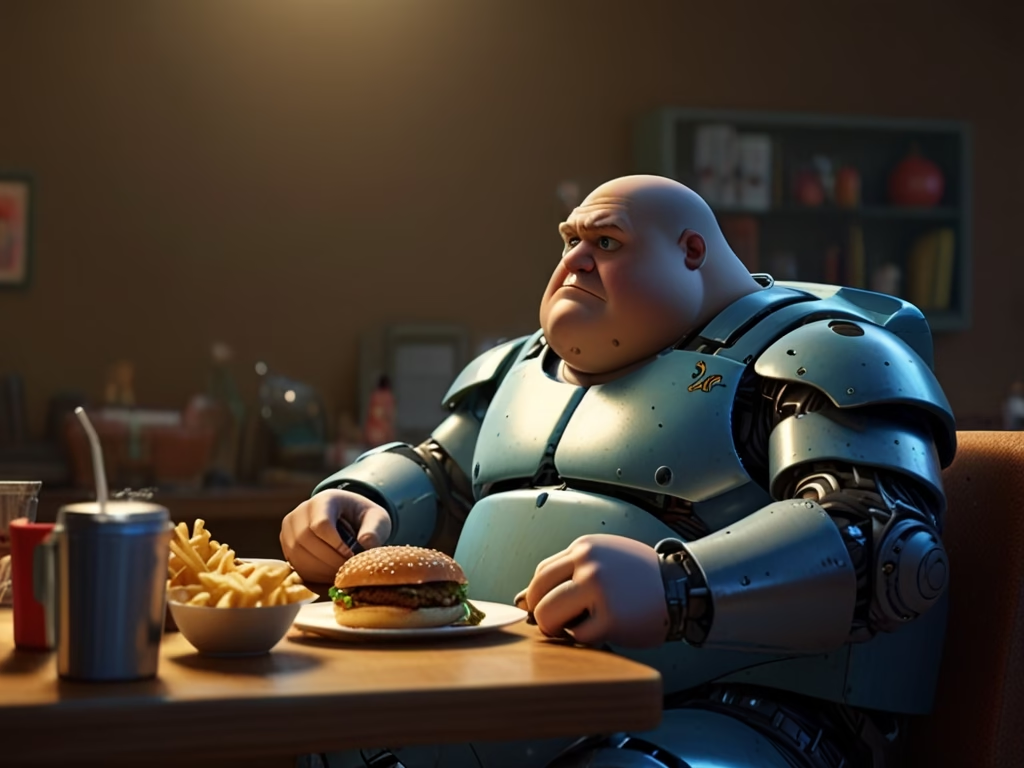
In essence, while our ancestors had to outwit predators and competitors to survive, today’s challenges are often less about mental prowess and more about how efficiently we can engage with the technology around us to make life easier, save time, and keep ourselves entertained.
But in seeking the easy route, we’ve diminished our ability to think critically and deeply, opting for solutions that require less effort and are often less rewarding – this is where fulfilment is lacking. As technology does more for us, we might just be losing the very faculties that allowed us to thrive in the first place.
Conclusion: A Smarter Approach to a Balanced Life
Ultimately, it’s about balance. Smart technology is here to stay, it’s getting even smarter and will offer no end of entertainment through VR, and conveniences through things like drone deliveries, robot housecleaners, and autonomous taxis – there’s no denying the advantages they will all bring. Plus, smart technologies and AI are helping to solve the world’s problems, like disease, and robots and drones carry out mundane or dangerous tasks, like fighting wars.
But before we completely hand over our lives to the cloud, it’s worth remembering that we still need to engage with the world around us. A bit of human interaction, a dash of effort, and maybe a stroll to the local shop – these are the things that keep us grounded, healthy and fulfilled.
Use Smart Tech Wisely

So, while we may be living in a world of automated conveniences, let’s not forget that true smart living means using technology to enhance, not replace, the human touch. And who knows, maybe the real smart move is stepping away from our gadgets now and then to embrace a bit of good old-fashioned effort. After all, there’s no “smart” technology that can truly replace a hug. Or a good, old-fashioned walk around the block – and instead of mindlessly streaming box sets, curl up and get lost in the pages of that long-neglected book.